- Home
- Roger Taylor
Into Narsindal tcoh-4 Page 22
Into Narsindal tcoh-4 Read online
Page 22
Again on impulse, Hawklan drew his sword and, taking hold of the blade, thrust the hilt towards the reaching figure. There was no resistance when the black sword entered the mist, but it became white, brilliant and shining. So bright that Hawklan had to turn his eyes away.
The Drienwr’s right hand closed around it and the air was suddenly filled with the sound that only Hawklan and a quiet Riddin child had heard on a sunny spring day months ago; the song of the Viladrien. Now, however, it was vast and joyous and seemed to fill the entire sky.
‘Wait!’ It was Gavor. Abruptly, his great wings started to thrash violently, throwing up flurries of snow, and slowly he rose and flew into the mist. As he did so, he too became white, and the movement of his powerful beating wings seemed to become infinitely slow, their great pulse matching that of the song of the cloud land. As Hawklan watched, he saw Ynar extend his left hand and Gavor alight on it. They were talking, Hawklan thought, but the scene was almost dreamlike and it seemed to Hawklan that Ynar was moving upwards with Gavor, although he could still feel the Drienwr’s light but strangely powerful grip on the sword.
Then the mist was gone, though, like the moment of the onset of sleep, none of the three watching men noted the moment of its passing.
Hawklan found himself holding the blade of his sword, its blackness glinting in the subdued torchlight that had illuminated the last part of his journey. He was flanked by Loman and Isloman, gazing uncertainly upwards into the darkness.
For some time no one spoke, as if fearful of disturb-ing even the memory of what had just passed. Then the mounting breeze that had presumably carried the Viladrien away, buffeted them, and Hawklan started out of his reverie.
‘Gavor,’ he cried out. ‘Where’s Gavor?’
His cry galvanized his friends and the three of them set up a great shouting.
Hawklan clenched his teeth in anxiety as he thrust his sword back into its scabbard. What had happened to his friend? Then, following in the wake of that question came the memory that the Drienwr had said he had come with a warning.
For a moment Hawklan was overwhelmed by an appalling sense of loss. His friend taken; some warning unheard; who knew what allies were perhaps lost now? And all through his angry impetuosity. He did not dare to look at Loman and Isloman for fear of the reproach that might lie in their eyes.
‘Look.’ Isloman’s voice reached into his darkness. He was pointing into the sky.
Hawklan drew his hood about his face to protect himself from the cold wind. The sullen clouds that had covered Orthlund for the past days were now scudding across a sky tinged yellow with moonlight. In the distance, and high above them, marked by Isloman’s pointing hand, was the dark form of the Viladrien; vast among the breaking clouds, and with its upper surface glittering with countless lights.
The three men stood spellbound at the sight.
‘Such things we’ve seen, Hawklan,’ Isloman said after a long silence. ‘I’d be a rare carver indeed if I could catch one tenth of that vision.’
Though buoyed up briefly by the majestic sight, Hawklan lapsed again into angry self-reproach.
‘And a rare captain I’d be if I’d listen to people in-stead of lecturing them,’ he said. ‘Gavor’s gone who knows where, and whatever the Drienvolk had to tell us is gone too.’
Before Loman and Isloman could speak however, something struck Hawklan’s head a glancing blow, and fell into the snow a few paces away. A familiar voice swore out of the darkness, then came, ‘Sorry, dear boy.’ Loman turned up his torch to reveal Gavor struggling to right himself in the soft snow.
‘At last,’ he said churlishly. ‘You might have done that sooner. ‘I’m not an owl you know.’
‘Where’ve you been?’ Hawklan said, crouching down and holding out his hand for the bird. ‘I thought you’d gone with Ynar.’
Gavor’s truculence vanished. ‘I did, in a way,’ he said distantly. ‘He took me where all Sphaeera’s creatures should go. I saw it, Hawklan. Saw it. Sphaeera’s… Anderras Darion. Great mansions and halls, towering and open… and the lights and colours… such a land… and such people… I soaring everywhere… ’
Hawklan picked him up gently. ‘But you were gone only a few minutes,’ he said.
‘No, I was there for hours,’ Gavor replied.
Hawklan looked at him thoughtfully and then aban-doned his interrogation. ‘Did you hurt yourself when you landed?’ he asked.
‘No, no,’ Gavor replied.
‘I’ll carry you anyway,’ Hawklan said. The two friends looked at one another, and Gavor nodded.
‘We’d better leave and find a camping place lower down before this wind gets any stronger,’ Loman said. ‘This is a dangerous place.’
‘We shall be with you,’ came the Alphraan’s voice, as the three men turned up their torches.
Their descent was slow and cautious, each knowing that tiredness and gravity were treacherous downhill companions. Gavor remained silent and warm inside Hawklan’s cloak, and when they finally made camp they ate a simple meal and lay down to sleep with barely a word.
The next morning a clear blue sky and brilliant sun displayed the white peaks and valleys surrounding the three travellers and they broke camp and continued their descent in good spirits. Gavor in particular seemed unusually boisterous and was soon floating high above the sweeping valleys.
Despite the beauty of the scene however, Hawklan’s thoughts were dominated by his conversation with the Drienwr. It seemed that Dar Hastuin had power over the Drienvolk as Creost had over the Morlider. Of the Uhriel, only Oklar so far had been successfully resisted. But what did it mean? Creost’s intended assault on Riddin could be understood, but what did Dar Hastuin’s power in the air mean for the Orthlundyn and Fyordyn armies?
With difficulty Hawklan managed to set his con-cerns aside. Ynar had been right, he didn’t understand; indeed, he couldn’t understand. He knew nothing of the Drienvolk, nor, he suspected, did anyone else, perhaps not even Gulda. Gavor probably did, but could he explain it? Such little as he had mentioned was strangely confused.
But he could not set aside the knowledge that the Drienvolk had sought him out to warn him of some-thing and he had thrust it from Ynar’s mind with his unexpected anger.
Eventually he voiced his concern. ‘Alphraan, do you know what Ynar tried to warn us of?’
‘No, Hawklan,’ replied the Alphraan. ‘When our ways met there was great happiness, but we came to you when we felt their pain. They gave us no warning, we… ’
‘Oh, I know about that, dear boy,’ Gavor interrupted, landing softly on Hawklan’s shoulder. ‘I thought you’d heard Ynar telling me. You should’ve asked.’
* * * *
Gulda had been told by the Alphraan about the sudden departure of Hawklan and the others the previous day, but on questioning them had received no answer other than, ‘We may not tell,’ overlaid with sounds of reassurance.
Unable to interrogate the Alphraan, she had taken the rebuff with an ill grace and had eventually retreated to the deserted wall where she had stood, black and motionless, defying the ubiquitous whiteness like a rock in the ocean.
Seemingly oblivious to the cold wind that was blow-ing over the snow-covered landscape, she stood for a long time rapt in who knew what thoughts.
Suddenly she started. Hawklan was speaking to her.
‘The Alphraan carry my voice, Gulda,’ he said. ‘We are needed in Riddin. Begin the levying of the army and select those who can march across these mountains.’
Gulda cocked her head on one side, as if testing the sound she was hearing, then, without speaking, she turned and walked towards the door that would lead her down into the Castle.
Chapter 12
Pandemonium was well established when Hawklan and the others returned to Anderras Darion on the day following their meeting with the Drienvolk, and it continued steadily for the next few days. On receiving Hawklan’s strange, disembodied instruction, Gulda had immediately sent messag
es to all parts of the country and gradually the chosen contingents were beginning to converge on the great Castle, bristling with arms and supplies, and with just enough enthusiasm and curiosity to keep their alarm at bay.
At a brief council of war, Hawklan told of the strange meeting and of Ynar’s message that the Morlider islands and a great armada were gathered off the northern shore of Riddin.
‘It’ll be a difficult journey,’ Loman said. ‘A forced march across the mountains and right across Riddin in far from ideal conditions.’
No one disagreed. ‘I don’t think we’ve any alterna-tive,’ Isloman said. ‘If what that Morlider-Drago-said about his people being united and learning to fight with some semblance of discipline is true, then the Muster’s going to be hard pressed especially in this weather. Good infantry can stand off cavalry and defeat it if their nerve holds. And if the Morlider have numbers and Creost… ’ He left his conclusion unspoken.
By now familiar with the open speaking of his hosts, Agreth was only mildly defensive at the suggestion that the Muster was anything other than invincible. ‘It’s a fine infantry that’ll stand long against our charges,’ he said. ‘But I agree, if they have the advantages you suggest, then we’ll be hard pressed.’
Later, alone with Andawyr and Gulda, Hawklan discussed the route that Ynar told Gavor the Morlider Islands were apparently taking.
‘Why would they come so far north?’
‘They probably think they can establish a good base before the Muster catches wind of them,’ Gulda suggested unconvincingly. ‘It’ll also give them the mountains to their back. Make it harder to flank them.’
Hawklan pulled a sour face. ‘It also gives them the Pass of Elewart at their back, and it cuts off the Cadwanol,’ he said, looking at Andawyr.
Andawyr shrugged. ‘I doubt Creost knows the Cad-wanol still exists, let alone where,’ he said. ‘At least I hope so. More importantly, it occurs to me that they might be expecting reinforcements down the Pass.’
It was a grim thought. Hawklan scowled. ‘It’s also an escape route into Narsindal for Creost if anything goes wrong,’ he said. Then, slapping his knees impatiently, he stood up. ‘Still, I think we’ll be wasting our time worrying about Creost’s strategic thinking. If he’s expecting reinforcements then all the more reason we get over there quickly, and if he’s got any escape routes planned let’s make sure he can’t use them.’ He looked at Andawyr darkly and his voice was suddenly cold.
‘He’s your province, Andawyr. According to Dar-volci, the Alphraan have their… ways… open as far as the Caves so presumably you can ask them to send a message of some kind. Rally your people’s every resource. I want Creost bound or dead at the end of this venture.’
With difficulty, the Cadwanwr held Hawklan’s men-acing gaze, but he did not reply.
Hawklan walked to a window and stared out. ‘If Riddin falls then not only do we lose a massive cavalry force, which will be vital in Narsindal, we’ll have to tie down most of our own army simply guarding our borders. We’ll have to meet Creost and the Morlider head-on and crush them utterly. Whatever the cost of success it can’t begin to compare with the cost of failure.’
Gulda grimaced. ‘What about your own plans?’ she said, turning away from Hawklan’s cruel summary.
‘They’re unchanged,’ Hawklan said. ‘In fact, moving to oppose the Morlider gives us a legitimate reason for being in that area if Sumeral has spies there. We’ll have to judge the situation as we find it, of course, but if all goes well, we should be able to slip away to the Caves and thence to the Pass at some juncture.’
Then the countrywide uproar faded and a substan-tial part of the Orthlundyn army stood ready at a temporary camp just outside Pedhavin, fired by Hawklan’s determination and anxious to begin its desperate trek across the mountains.
‘You have our best there,’ Gulda said quietly as Hawklan prepared to mount Serian. He nodded but did not speak. Instead he looked up at the Castle Wall towering high above him, massive and solid against the grey sky. It was snowing a little and a few flakes settled on his face and slowly melted. For a moment a terrible pain showed.
‘The Alphraan will tell you of our progress while we’re in the mountains,’ he said hoarsely. ‘I leave the disposition of all the other troops with you and Lord Arinndier. See what reply Eldric sends to our news then head into Fyorlund as soon as you can. The people know what to do if things go wrong. The castle’s well stocked and self-sufficient… if… ’ His voice faded.
Gulda shook her head reproachfully. ‘We’ve been over this ten times, Hawklan,’ she said. ‘We all know what to do. Take care.’ Then she stepped forward and embraced him. As she released him, Hawklan felt his arm held in a merciless grip and his eyes pinioned on her blue-eyed stare. ‘Ethriss go with you, prince,’ she said. ‘You and I will meet again at Derras Ustramel. We’ll end this horror either dead or with His head impaled on your sword.’
Then, without further comment, she turned and stumped back towards the Castle Gate. Hawklan watched her go, shaken by the terrible passion of her unexpected declaration. He was uncertain how long he stood there but suddenly he found Tirilen standing in front of him. She had been saying farewell to her father and her uncle and she was weeping, though not pettishly or with a clinging heart. A healer herself, she knew it was the only release she had for the measureless sorrow and pain she felt, and she knew not to deny it.
Hawklan wanted to say something, but he found no words that would do anything other than rattle vainly in the cold winter air. Instead, he leaned forward and kissed her forehead. She placed an arm around his neck and held him for a moment.
‘Take care,’ they both said simultaneously. Then Tirilen turned to follow Gulda, and Hawklan swung up onto Serian.
‘Carry me to my army, Muster Horse,’ he said. ‘My legs unman me.’
* * * *
The journey through the snow-clogged mountains proved to be quite as difficult as had been envisaged. The path to Riddin was not designed to accommodate an army, and the several thousand troops were soon spread out along valleys and ridges in a thin, rambling line.
‘I’m glad we don’t have to guard our flanks in this terrain,’ Hawklan said to Isloman as he reached a prominence and stared back at the great winding procession.
Necessarily, progress was slow and careful as they had brought no carts and for the most part each individual was carrying his or her own equipment and supplies, although the few hundred horses they had brought for the use of scouts and skirmishers served as useful pack animals also.
For the first few days the weather confined itself to bright sunshine and occasional light falls of snow, and the natural good spirits and camaraderie of the marchers lessened the effects of the cold and the discomfort. As they climbed steadily towards the heart of the mountains however, the weather deteriorated markedly and the wind began to whip the snow into a dense, obscuring blizzard.
For a while the long twisting line eased forward, but as the light began to fail, Hawklan brought it to a halt, and gradually a thin, blurred skein of beacon torches began to thread its way through the white-streaked darkness as the army gratefully pitched camp.
In the command tent, Hawklan was not too con-cerned at the change in the weather. ‘We’ve made good progress so far,’ he said. ‘Very few accidents, no animals lost, and morale good.’
Loman was less sanguine. ‘A situation that could change very quickly if we get stuck here for any length of time,’ he said.
Hawklan nodded. ‘There’s no question of that,’ he replied unequivocally. ‘This weather won’t be keeping the Morlider away. We rise early tomorrow and we move forward, regardless. Everyone’s well-equipped and fit, and we can’t afford to dawdle. If anyone objects, remind him that we haven’t the supplies and our friends haven’t the time to wait the weather’s whim.’
And move they did, for all the wind was screaming its relentless opposition. The way was too narrow and the line of march too long fo
r Hawklan and the others to move to and fro offering encouragement, so each section had to maintain its station by the simple expedient of shouted or whistled signals. Hawklan expressly forbade the Alphraan to help. ‘You won’t be with us on the plains of Riddin,’ he said. ‘These disciplines must be well learned from the start.’
The strong wind blew for several days but, driven both by Hawklan’s will and his example, the Orthlundyn army plodded slowly and defiantly on, each individual, limbs aching with fatigue and head bowed against the pitiless wind, concentrating on the person immediately in front, trying not to wait for that precious instruction to halt and camp that would eventually drift out of the whirling din ahead.
Finally the wind seemed to lose heart and, subsid-ing, allowed distant peaks to come into view once more.
It was with no small relief that Hawklan clambered up on to a ridge and confirmed for himself that his army was still intact. He remained on the ridge as the long column wound slowly past him, then he walked its length from rearguard to vanguard, bringing his healing touch to bear where the blizzard had torn into the will of his people.
‘You’re quiet,’ Isloman said that night.
Hawklan chuckled ruefully. ‘I’m exhausted,’ he said. ‘That’s a long, thin army we’ve got out there.’
Surprisingly, more injuries occurred during the subsequent fine weather than during the blizzard. The worst was the loss of a young man in an act of foolish bravado on an icy ridge. His flailing, sickening progress down the steep cliff face was watched in silent, impotent horror by a thousand eyes until he finally disappeared from view. Then there was uproar and ropes were lifted down from horses.
‘No!’ Hawklan cried in distress. ‘He’s beyond our help now. We’ll find him when we return.’

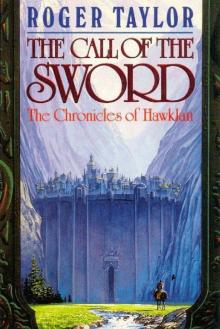 The call of the sword tcoh-1
The call of the sword tcoh-1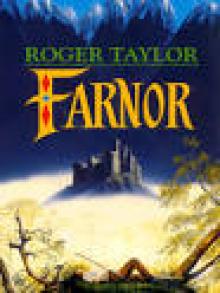 Farnor
Farnor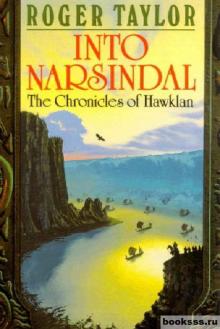 Into Narsindal
Into Narsindal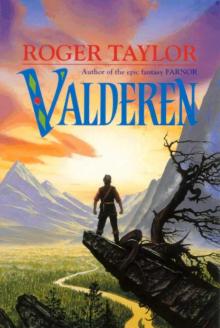 Valderen ft-2
Valderen ft-2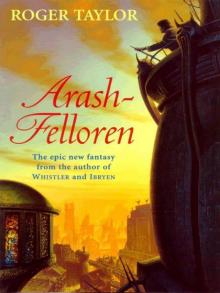 Arash-Felloren
Arash-Felloren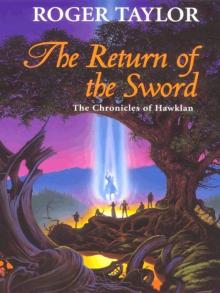 The Return of the Sword tcoh-5
The Return of the Sword tcoh-5![Ibryen [A sequel to the Chronicles of Hawklan] Read online](http://i1.bookreadfree.com/i1/03/26/ibryen_a_sequel_to_the_chronicles_of_hawklan_preview.jpg) Ibryen [A sequel to the Chronicles of Hawklan]
Ibryen [A sequel to the Chronicles of Hawklan]![The Call of the Sword [Book One of The Chronicles of Hawklan] Read online](http://i1.bookreadfree.com/i/03/24/the_call_of_the_sword_book_one_of_the_chronicles_of_hawklan_preview.jpg) The Call of the Sword [Book One of The Chronicles of Hawklan]
The Call of the Sword [Book One of The Chronicles of Hawklan]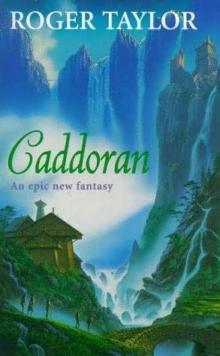 Caddoran
Caddoran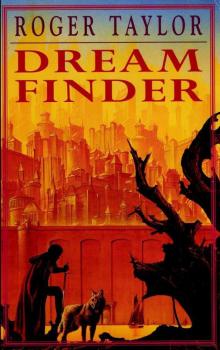 Dream Finder
Dream Finder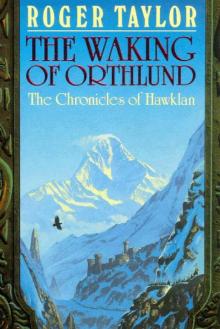 The Waking of Orthlund
The Waking of Orthlund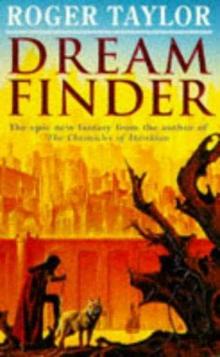 Dream Finder cohs-1
Dream Finder cohs-1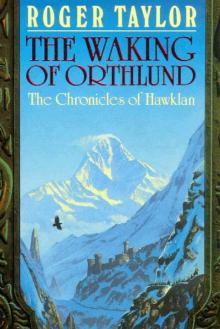 The waking of Orthlund tcoh-3
The waking of Orthlund tcoh-3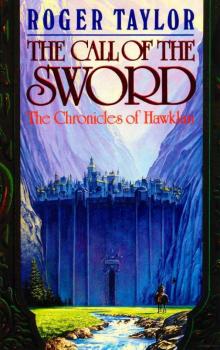 The Call of the Sword
The Call of the Sword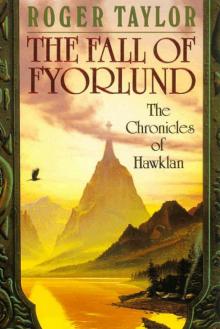 The fall of Fyorlund tcoh-2
The fall of Fyorlund tcoh-2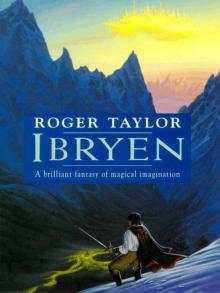 Ibryen
Ibryen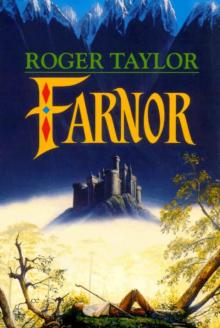 Farnor ft-1
Farnor ft-1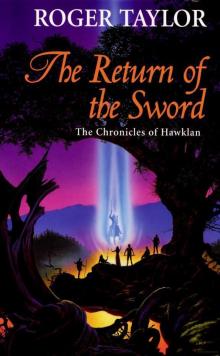 The Return of the Sword
The Return of the Sword![Into Narsindal [Book Four of The Chronicles of Hawklan] Read online](http://i1.bookreadfree.com/i2/04/06/into_narsindal_book_four_of_the_chronicles_of_hawklan_preview.jpg) Into Narsindal [Book Four of The Chronicles of Hawklan]
Into Narsindal [Book Four of The Chronicles of Hawklan]![Valderen [The Second Part of Farnor's Tale] Read online](http://i1.bookreadfree.com/i2/04/05/valderen_the_second_part_of_farnors_tale_preview.jpg) Valderen [The Second Part of Farnor's Tale]
Valderen [The Second Part of Farnor's Tale]![The Fall of Fyorlund [Book Two of The Chronicles of Hawklan] Read online](http://i1.bookreadfree.com/i2/04/08/the_fall_of_fyorlund_book_two_of_the_chronicles_of_hawklan_preview.jpg) The Fall of Fyorlund [Book Two of The Chronicles of Hawklan]
The Fall of Fyorlund [Book Two of The Chronicles of Hawklan]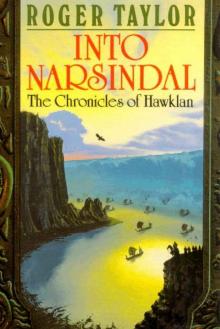 Into Narsindal tcoh-4
Into Narsindal tcoh-4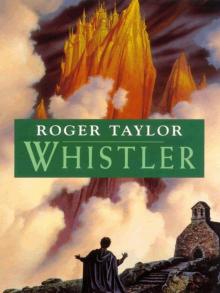 Whistler
Whistler![Whistler [A sequel to The Chronicles of Hawklan] Read online](http://i1.bookreadfree.com/i2/04/12/whistler_a_sequel_to_the_chronicles_of_hawklan_preview.jpg) Whistler [A sequel to The Chronicles of Hawklan]
Whistler [A sequel to The Chronicles of Hawklan]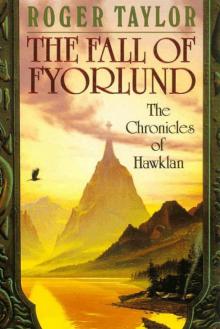 The Fall of Fyorlund
The Fall of Fyorlund![The Waking of Orthlund [Book Three of The Chronicles of Hawklan] Read online](http://i1.bookreadfree.com/i2/04/11/the_waking_of_orthlund_book_three_of_the_chronicles_of_hawklan_preview.jpg) The Waking of Orthlund [Book Three of The Chronicles of Hawklan]
The Waking of Orthlund [Book Three of The Chronicles of Hawklan]